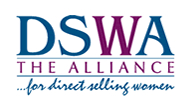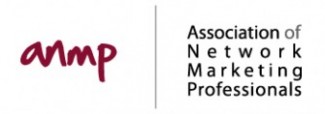By Len Clements © 2003
GasUp USA claims to offer a pre-paid gas card that provides a “21% savings” on gasoline purchases, as well as a discount benefits package, and most recently telecommunication services. While the corporate web site seems to emphasize the benefits package and long distance service a bit more than the gas card (and more and more so as time goes by), the overwhelming emphasis in the field seems to be on the idea of getting cheaper gas. Clearly that’s the focus of the program. After all, the company is called “GasUp USA” (here on called “GasUp”).
Basically, the program works like this: You enroll as a “Member” for $174.98 ($159.99 plus a $14.99 “check processing fee”), which is renewable annually. It costs $99.99 to enroll as an “Independent Representatives” (IR), which gives you the right to sell memberships and build a downline. However, if you enroll as a member as well, the $99.99 IR fee is waived.
The membership entitles you to a fairly comprehensive but typical benefits package offering various products and services (discounts on hotel rooms, rental cars, doctor visits, grocery coupons, legal service, free credit card protection, and much more). As a member you also have the ability to purchase prepaid gas cards that allegedly save you 21% at the pump. Members can only use the membership benefits, but can’t sell memberships or earn downline commissions.
As an IR you can enroll other IRs and sign up members and they are all placed in your downline. Bonuses and commissions are based on a binary compensation plan. You earn up to $100 for every nine members that fall below you (with a minimum of 3 in one leg) plus a free gas card. GasUp claims their binary is “non flushing,” meaning all unpaid downline volume carries over with no maximum limit.
GasUp launched on July 1st, 2002 and claims to have 78,000 members (as of 1/17/03).1
The two greatest concerns I have deal with the legality and the financial viability of the program.
Pyramid Concerns
The question here, as it always is when dealing with this not so cut and dry issue, is; Can the last person in make money from all income sources? In other words, are there any types of compensation related to GasUp that are directly tied and dependent upon the recruitment of distributors (IRs).
Technically, the answer is no. But here’s where it’s not so cut and dry. Many quasi-MLM programs have been attacked or shut down by regulators for being illegal pyramids that had perfectly legitimate products of value. Jewelway and Equinox come to mind. The challenge relates to the motive for buying the products. Did the reps really want the products, or were they just buying them as a token act to meet a quota in the comp plan? If only reps are buying your product, then you would have to recruit to make money.
The only reason I see that someone would buy a GasUp membership is either to get the discount benefits package, or the discount on gas. However, comparable benefits packages sell for less than half the GasUp membership fee elsewhere. I’ve found one almost identical offered for $199 for five years (rather than $174.98 for one year). In fact, selling benefits packages at an inflated price to support an MLM comp plan has already been legally challenged – and failed. There were a rash of such program in the early 90’s, the most notable of which was called Consumer’s Buyline (CBI). CBI offered a similar package for $270 per year, and they were one of the cheapest. However, they were declared an illegal pyramid because such packages at the time were normally going for around $35 per year, so it was viewed (by the AGs of several states) that, although the package itself may have had true value, it was only being purchased by reps who needed to qualify for income. Same with FundAmerica in the late 80’s. They had sold 95,298 memberships and had 88,960 distributors (an average of 1.07 members per reps).2
So while the $174.98 price tag is dubious on it’s own, there is another aspect to the membership – the alleged gas discounts. The problem here is, this isn’t really a discount on gas, it’s a discount on cash! The “gas card” is really just a debit card that can be used on any item the gas station sells. You could use it for auto servicing, tires, candy, beef jerky, milk, or what ever else is in the station’s store. This debit card comes loaded with a $25 balance, and you buy it for $19.75. So, when you fill your tank and the pump says $25.00, you pay the station $25.00 – but you bought that $25 for $19.75. So you didn’t get a 21% discount on gas from the station or gas company, you got a 21% discount on cash from GasUp USA.
Basically, the program is designed as follows: If someone pays $174.98 cash to become an IR/member, then gets 9 others to pay $174.98 cash (for the right to obtain $25 in exchange for $19.75), they earn $100 cash, plus $25 (for the free gas card). So, what exactly is the product? It appears this entire transaction (between GasUp USA, the IR, and the members) is simply an exchange of various forms of cash.
Now, would someone pay $174.98 just for the benefits package (with no interest in the income opportunity)? Arguably not. Throw in the right to exchange $19.75 for $25.00, and allow members to do that eight times a month, and you’ve got a deal! That’s like getting a $504 rebate on your membership ($5.25 profit per card, eight times per month, times 12 months). That’s a $329 profit and you haven’t even used the benefits package yet. But then, whether or not discounted cash validates the membership has yet to be tested in court.
But it may soon. The Attorney General’s office of Kansas issued a warning to consumers on Nov. 22nd 2002 calling GasUp a “pyramid scheme” and citing that the benefits package “appears to be readily available to consumers (elsewhere) at no cost.”3
On December 6th of 2002 the Idaho AG’s office issued a “Consumer Alert” siting GasUp reps in that state were claiming GasUp was “reviewed, approved and endorsed” by the Attorney General himself.4 The alert not only adamantly denied any such approval or endorsement (no AG of any state would ever do this for any company), it went on to include a short primer on what factors they look for in determining whether a marketing program violates Idaho’s pyramid law.
Another legal red flag involves GasUp’s no refund policy. What are commonly referred to as the “Amway safeguards” (based on the FTC vs. Amway case of 1979)5, which all responsible MLM companies attempt to abide by, include a full refund policy (less a standard 10% fee). Stated in red letters on the on-line enrollment form is the statement: “All Sales are final. GasUpUSA is unable to offer refunds.”6
Finally, there is much legal precedent that simply paying multilevel commissions on “memberships” is legally problematic. Especially when those members, who are not participants in the income opportunity, are structured into the downline matrix right along with the reps themselves. In such cases, income is not derived from the retail profit of a sale to an “end user” but rather entirely from overrides on the downline. In GasUp, there is no provision for retail profit. You don’t buy a membership at wholesale, mark it up and resell it at a profit. Reps buy a membership for the same price as non-reps, and they all go into a 2-wide matrix structure (such is the downline hierarchy in a binary compensation plan). For example, in the case of Missouri vs. Membership Marketing (a/k/a Five Star Plus)7, the Attorney General sited the fact that “there is no resale outside the matrix.” In the case of Illinois vs. Unimax8 (a membership based pyramid scheme), the AG made the case that “commissions earned by marketers are contingent not on sales of any goods or services (outside the comp plan)… only on bringing new individuals into the Unimax plan. The greater the number of subscribers a marketer sponsors, the greater his monthly commission check will be.” Note the AG here again takes issue with non-rep customers (subscribers) holding positions in the downline right along with distributors (marketers).
Ponsi Concern
Ironically, the very thing that may (emphasize may) get them off the hook on the pyramid issue, the gas card, raises the greatest potential legal challenge of all. It could easily cause GasUP to be declared a Ponsi scheme.
[For a detailed description of a pyramid and a Ponsi scheme, and the difference between them, go to http://www.marketwaveinc.com/articles/pyramid.asp]
Put simply, a Ponsi scheme is one where the payout is greater than the income for each transaction, thus requiring an endless and ever increasing supply of participants to maintain the scheme. For example, Charles Ponsi, back in the 1920s, offered a $1,500 return on a $1,000 investment. The $500 difference came from the next investor’s $1,000 payment, and so on.
I don’t want to get bogged down in a technical analysis of the binary pay plan, but trust me when I say (because I have done an extensive technical analysis of the binary pay plan) when one doesn’t “flush” volume, it essentially pays infinitely deep. Most plans base their stopping point on a certain number of levels, say six. Volume below that level is outside the pay range of the plan. Binary plans base their stopping point on sales volume, typically $5,000 in each of two legs, which in most cases comes out to about six levels of people, so not a lot of difference, just different methods of arriving at the same goal. That being, to avoid paying infinitely in depth – because if you did you’d go bankrupt! Some binary plans in the past have already tried this “no flush” gimmick. Sure enough, the larger the national sales force got (i.e. the company’s downline) the higher the total payout skyrocketed (I’ve been involved as a consultant in specific cases where this happened, so this isn’t theory). Then, along came the non-flushing binary with the “cap” on payout. The now defunct SkyBiz was one of the first. They had a 70% cap on their payout, so although they bragged about not flushing volume, they effectively created the same depth limitation by capping the overall payout itself rather than the volume or the levels you are paid on. GasUp USA does the exact same thing. It’s just smoke and mirrors.
So if GasUp is paying out 70% of the membership fee in commission this would potentially leave them with a gross profit of $48.00. Therefore, it would seem that after the ninth card is purchased by the member (sometime early in their second month), GasUp USA would be operating at a net loss. Even if the plan actually pays less than 70% now, it is mathematically inevitable that it will reach the 70% cap since they are not “flushing” the excess volume. Since it would behoove the member to take full advantage of the eight card maximum purchase per month, GasUp USA would be exposed to a potential $456 per member loss, per year ($504 – $48). This isn’t even considering the up to $750 per month in free gas cards that an IR can earn (creating a potential additional net loss of $9,000 per year). What other revenue source is in place to compensate for losses of this magnitude? GasUp claims they exist – in the FAQ section of the corporate web site, where they attempt to address this questions specifically – but fail to mention exactly what they are.
It gets worse.
The discount benefit package has a wholesale cost to it. I tried to find out what that is from the “American Benefits Counsel,” the organization that GasUp claims is supplying the package. The only problem is, “American Benefits Council” (note the different spelling of the last word) doesn’t supply such benefit packages and they had never heard of GasUp USA until recently when they started getting calls asking about them. They are also considering legal action against the “American Benefits Counsel” for trademark violations9 – assuming such an organization even exists (an extensive web search using the word “Counsel” failed to locate such a company). However, according to research done by Corey Augenstein (MLM Insider)10, such packages typically wholesale for under $15 when bought in bulk. What ever the amount, that must also be deducted from the gross profit on memberships.
There’s more.
According to the GasUp application the $99.00 charge to be an IR only (without a membership purchase) was “at cost.” The fee was waived if the enrolling IR also purchases the membership. But, if it costs GasUp $99.00 per year to administer a distributorship, how is that cost eliminated just by eliminating the fee? Assuming the “at cost” claim is truthful (a generous assumption), then an IR’s membership would provide GasUp with an annual gross profit of $60.95 ($159.99 – $99.00). But, we still have to deduct that 70% pay out! That’s a loss of $51.00 even before the first gas card is purchased! Subtract the $504.00 in annual loss on the card and GasUp is in the red $555.00 per member.
Of course, very few, if any, will sign up for $99.00 and not buy the membership. To even have it on the application is window dressing. But still, is there a $99.00 cost to GasUp, or isn’t there? Curiously, the “at cost” claim was recently removed from the on-line application. However, it is symptomatic of an illegal pyramid for an MLM company to make a profit on distributor fees, sales aids, or enrollment kits (else the company is making a profit from recruiting). If the $99.00 IR fee is still “at cost” then everything I just described is accurate. If it’s not, then their claim was deceptive in the past, and they’re making a profit from distributor fees now. It’s a no win situation.
GasUp makes a rather lame effort to address this “how can we do this” question in the FAQ section of their web site11. Here’s what they say: “This (the gas card) is a promotional item that is taken advantage of by a relatively small number of our customers, but is viewed as an attractive option from a marketing standpoint.” I guess they deserve credit for being candid. But really, what did they just say? First of all, the ability to exchange $158 for $200 every month is exercised by a “relatively small number” of members? That’s pretty hard to accept, isn’t it? Especially considering it was such an “attractive” option when the member enrolled. Elsewhere in the GasUp web site they state, “You ask 10 people if they want to save money on gas, and 10 people will say yes.” I agree. So why would a “relatively small number” of those who signed up for this actually do it?
They further state: “Although it is attractive from a marketing standpoint for consumers, the gas card bonus is of more interest to our representatives in their compensation payout and the overwhelming attraction to consumers is the extensive array of consumer benefits in the consumer services package that we sell to the retail consumer.” But, IRs and non-IR consumers have identical membership privileges. Is GasUp suggesting that IRs are not heavily emphasizing the ability to trade up $158 for $200 every month to consumers? Or that consumers are not overwhelmingly attracted to this aspect of the membership? But they do have an “overwhelming attraction” to overpaying for a discount benefits package that they could get from numerous other sources cheaper? Come on.
Even if we assume GasUp’s explanation is accurate – that is, they can afford to trade $200 for $158 because so few members ask them to – what if the average IQ of their 78,000 members suddenly rises 50 points and they do?
Where is the difference coming from? How can GasUp afford to do this? According to GasUp, “We look upon this as a marketing expense, traditional retail companies spend millions on advertising. We plan to spend millions helping people save on gas.” This rationale has typically been used by other MLM programs to explain the pay out in their comp plans – that is, it’s an expense in lieu of advertising. I’ve never heard of a company deliberately building in a net loss on one of their main products and calling it a marketing expense. But I do agree with their statement – it’s going to cost them millions.
If, indeed, they are paying out more than they are taking in, then they will need an infinite number of new members to pay off the previous members. Right now, GasUp is very likely profitable. In the beginning they get the full annual membership income, and the expenses are burned off over the year. With only about half of the annual expenses paid out so far on the earliest members (those who signed up in July), and most memberships less than three months old (they averaged 331 new members per day their first 134 days, and 508 their last 66 days), GasUp is likely rolling in cash. However, based on the most optimistic scenarios (like the one described below) GasUp will start losing money on the average membership sometime during the second six months. There’s already anecdotal evidence of a cash flow squeeze by the recent 16.7% increase in membership fees. Previous to Jan. 1st, the membership was $149.99. Although the company’s 24 hour recorded opportunity call still sites this price (17 days after the price hike), the cost now actually totals $174.98.
Let’s be very conservative and assume GasUp is only paying out 50%, and the average member only buys one-fourth as many cards as they are allowed (so we’re assuming they voluntarily choose to forgo $31.50 in free cash every month – that being, six of the eight cards they’re allowed to buy). Here’s what would happen:
Income
Membership $159.99
24 Gas Cards (2 per mo.) 474.00
Total annual income $633.99
Expenses
Annual IR “cost” $99.99
50% payout on membership 80.00
24 Gas Cards (2 per mo.) 600.00
Total annual expense $779.99
Total net loss $146.00
As of this writing GasUp claims to have almost 78,000 members since their launch in July of 2002. Even if we further assume, absurdly optimistically, that 100% are members and none are IRs thus eliminating the $99.99 IR administration cost completely (or, we assume it’s actually far less than the stated $99.99), GasUp is still bound for a first year loss of over $3.5 million!
If we assume, worst case, they are paying out 70%, it really costs them $99.99 to administer an IR for a year, and virtually all members are also IRs, and members take full advantage of the eight card purchase limit per month, GasUp will lose over $43 million their first fiscal year.
Or, split the difference and they lose about $23.3 million. No matter how you cut it, at their current pace, they’re going to lose millions.
And all of this isn’t even counting the day to day operating expenses (I’m assuming the $14.99 annual check processing fee is a break even deal), the cost for the benefits package, or the up to $750 per month in free gas cards that can be earned in the comp plan.
The only other revenue streams available to GasUp are small fees charged to maintain the gas card, and whatever small profit they make from reselling a newly offered long distance and cell phone service. But these would likely make up only a small fraction of the loss.
But then, this all also assumes GasUp management doesn’t wait until the inevitable point where cash flow peaks, then just as it begins it’s slide down the other side of the bell shaped cash flow curve, dump the whole scheme and walk away. I’m not saying they will, nor do I have any information that suggests that’s the plan. It’s just the one that would make the most sense, at least financially.
Management and Company Concerns
Would GasUp management do such a thing? I have no idea. What I am pretty sure of it what constitutes libel – so let me be very clear about this: I define “scheme” and “scam” quite differently. An illegal scheme is one where it’s founders and operators may be genuinely unaware of it’s illegality, and may have true and honest intentions. They’re not bad people, they’re just ignorant of the law. Then, their are those who run scams. These people are very much aware that what they are doing is wrong, and don’t mind hurting others to effect their own financial gain. Is GasUp a scheme or a scam? Again, I have no idea. I’m not a mind reader.
Having said that…
GasUp “management” appears to be a team of one – Mr. Eric Dalius. In the “Company & Leadership” section of the corporate web site,12 there is only a brief bio of Mr. Dalius, GasUp’s founder and CEO (the first five-plus months the company was in business, the company profile page read only “Coming Soon”). His bio states that he earned a bachelor’s degree in marketing from Penn State University and has 13 years experience in network marketing. He also claims to have had great success in the areas of mass-marketing, telecommunications, nutritional products, internet services, and travel. Prior to network marketing, Mr. Dalius worked with a Fortune 500 telecommunications company and was a top sales representative.
What his bio fails to mention is that he was fired from that company (MCI) in May of 1995. According to a suit filed by MCI, Dalius and others defrauded MCI and infringed on it’s trademark by selling free calling cards as part of a kit for a nutritional products company.
Also in 1995 Mr. Dalius was investigated by the U.S. attorney general’s office and his office and home were search and records seized by the FBI. He was co-owner of a company called Telecom Solutions which was accused of wire and mail fraud. Some cards sold by Dalius’s company were inoperable. Others were offered at a rate of 1,030 minutes for $100, or 9.7¢ per minute (a great rate at the time). However, the cards were really for only 30 minutes and the 1,000 minutes were a “bonus” that was “subject to availability” – which Telecom failed to mention on the order form. The company was also accused of refusing to pay refunds to customers that claimed they never received their card or the card didn’t work.
In January of 2000 Eric Dalius was formally indicted by a federal grand jury on fraud charges related to Telecom Solutions. According to the indictment Telecom accepted money for calling cards before they ever contracted with a long-distance carrier (eventually, AT&T and LCI did provide service, but cut off Telecom for non-payment).
In April of 2000, before a U.S. District court, Mr. Dalius admitted to conspiracy to commit fraud and wire fraud. He was fined $38,000 and sentenced to one year in a work-release center.13
The Pennsylvania Better Business Bureau reports that GasUp has resolved all complaints presented to it. The complaints “have alleged failure to deliver the promised card and inaccuracies about the company’s promotion as stated on the website… failure to credit consumers’ accounts and also dissatisfaction that the company’s phone line is constantly busy.” GasUp has responded in most cases by providing refunds (in spite of their own “no refund” policy).14
GasUp corporate recently announced that they were changing banks. In a public announcement they claimed they had “out grown the operating parameters of our current financial institution” and in addition their move to take GasUp global had forced them to “ally with a banking institution that can handle banking procedures of the magnitude in which we are currently dealing.” This was offered as part of an explanation as to why checks would be a week late.
Their bank was Patriot Bank.15 When I called them to ask about GasUp I was informed they do not discuss client relationships, or ex-clients in this case. So I called back later and posed as a potential business client. I inquired as to their limitations and global capabilities and was curtly informed that Patriot Bank has been in business for almost a century, has almost a billion dollars in assets, is publicly traded on the NASDAQ (symbol: PBIX), and were perfectly capable of handling the banking needs of “Microsoft” were they a client. Curious. They could handle the banking needs of Microsoft, but not GasUp USA?
After speaking with GasUp’s current bank, First Union (soon to be merged with Wachovia Bank)16 I discovered that they are not conducting an “internal investigation” of GasUp and they are (at least as of Jan. 16th) accepting for deposit GasUp commission checks, contrary to internet rumors.
However, according to a confidential “corporate update” e-mailed to GasUp field leaders, as of December 24th Patriot bank has frozen the funds of GasUp USA allegedly to cover any potential charge backs. This likely explains why commission checks are now almost four weeks late. The update alleges that there will be a court hearing on Friday, January 17th, in an effort to have the funds released.
Based on my experience over the years as a consultant to start up MLM companies, it is a standard practice during the prelaunch phase to become a member of the Better Business Bureau (a simple and inexpensive process) and to trademark the company name and slogans. Curiously, now almost seven months after their launch, GasUp USA has done neither.
GasUp did hire Gerald Nehra17, one of the most reputable MLM attorneys in the country. Last October Mr. Nehra resigned as their attorney siting only a “conflict of interest.” Maybe that’s why he’s one of the most reputable attorneys in the country.
Conclusion
Until a lot more questions are answered, and the smoke clears from the legal arena, I would strongly recommend that GasUp USA be avoided.
And yes, I did attempt, more than once, to get my questions answered directly from Mr. Dalius. He has failed to respond.
1. http://www.gasupusa.com
2. http://www.mlmlaw.com/library/cases/mlm/feddistrict/canguyen.htm
3. http://www.ksag.org/contents/news-releases/2002news/gasupUSA.htm
4. http://www2.state.id.us/ag/newsrel/2002/pr_dec062002.htm
5. http://www.mlmlaw.com/library/cases/mlm/ftc/amway.htm
6. https://www.gasupusasecure.net/signup.asp?pagename=
7. http://www.mlmlaw.com/library/cases/mlm/state/momember.htm
8. http://www.mlmlaw.com/library/cases/mlm/state/ilunimax.htm
9. http://www.worldwidescam.com/gasupabc.htm
10. http://www.mlminsider.com
11. http://www.gasupusa.com/faq.asp?pagename=
12. http://www.gasupusa.com/about_us.asp?pagename=
13. http://pqasb.pqarchiver.com/mcall/ (search for “Eric Dalius”)
14. http://www.easternpa.bbb.org/report.html?compid=B5000946
15. http://www.patriotbank.com/
16. http://www.wachovia.com/welcome/?targetHost=www.firstunion.com&targetPath=/
17. http://www.mlmatty.com










